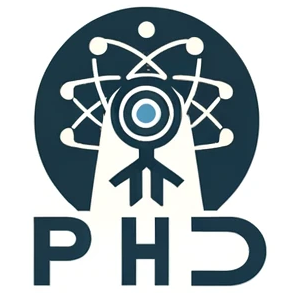
Embarking on a PhD journey in the United States is not just an academic endeavor but a transformative life experience. It’s a path that leads to remarkable discoveries, personal growth, and professional achievement. Through this guide, we’ll explore what a PhD journey entails, from the application process to life as a graduate student, focusing particularly on the unique opportunities in STEM fields. Join us as we provide unique insight for this exciting and challenging adventure.
Understanding PhD Programs in the USA:
A PhD, or Doctor of Philosophy, is more than an academic degree; it’s a journey of deep research and discovery. In the U.S., these programs span across a myriad of fields from sciences and engineering to humanities and arts. Typically, they involve a blend of coursework, qualifying exams, and a significant amount of original research, usually spanning 5-6 years.
Choosing the Right PhD Program:
Selecting the right PhD program is a pivotal decision. Considerations include the program’s reputation, faculty expertise, and research facilities. Aligning your research interests with those of potential advisors and the department is crucial, given the 5-6 year commitment of a PhD program. Personally, finding an environment that aligns with your personality outweighs the prestige of a program. Find out how happy the students in the program are. Most current PhD students would be happy to tell you the truth if you reach out to them.
Application Process for PhD Programs:
Though daunting, the application process is a rewarding journey in itself. Key elements include academic transcripts, recommendation letters, a statement of purpose, and sometimes standardized test scores(English proficiency, GRE are no longer required). A strong application showcases your academic strength, research potential, and personal motivations that includes your reasons for wanting to pursue a PhD at X institution.
Funding Your PhD Journey:
Most U.S. PhD students, particularly in STEM fields, are funded through stipends for research or teaching assistantships. These stipends, varying by university and location, are modest but aim to support students through their program without needing external employment. Additional funding can be supplemented through teaching roles or secured via internal (fellowships exclusive to the university or area) and external fellowships (national), like NSF, F30/31, HHMI which require a 2-5 page research statement.
Life as a PhD Student:
Balancing research, coursework, and personal commitments, life as a PhD student is challenging yet enriching. The relationship with your PhD advisor is a key element, providing guidance and support throughout your journey. Here, you’ll hear from current students about their unique experiences and how they navigate these challenges (coming soon).
Research Opportunities and Responsibilities:
PhD students undertake extensive research, contributing novel insights to their fields. This involves designing experiments, collecting and analyzing data, and presenting findings. Ethical and meaningful research is a cornerstone of this journey. Let’s delve into a typical research project to see this in action (coming soon).
Networking and Professional Development:
Networking is a critical aspect of the PhD experience. Engaging in conferences, academic forums, and collaborative projects helps build a professional network vital for your future career. PhD programs also offer professional development opportunities, enhancing your skillset beyond research. Most scientists find connections trough Twitter/X and LinkedIn.
Challenges and Rewards of PhD Life:
The PhD journey is rigorous but immensely rewarding. It brings a sense of accomplishment, contributes to the scientific community, and opens up diverse career opportunities. Hear from our alumni about how they navigated these challenges and reaped the rewards (coming soon).
Career Prospects After PhD:
PhD graduates are highly sought after in academia, research, industry, and government. The skills acquired – critical thinking, problem-solving, and research – are invaluable across various fields. We’ll explore specific career paths that PhD alumni have successfully pursued (coming soon).
Preparing for the PhD Defense:
The defense is the culmination of your PhD program. Preparation involves a thorough understanding of your research area and readiness to discuss and critique your work. We’ll provide tips on how to prepare effectively, including common pitfalls to avoid during this crucial milestone (coming soon).
Life After PhD: What’s Next?:
Life post-PhD brims with opportunities. Whether it’s pursuing postdoctoral research, transitioning into industry, or exploring alternative paths, the journey post-PhD is as diverse as the individuals who embark on it. We’ll offer insights into making this transition smoothly (coming soon).
Advice from Current PhD Students and Alumni:
Gleaning insights from those who have walked this path is invaluable. Their experiences, covering a range of journeys and outcomes, offer guidance and inspiration for prospective PhD students (coming soon).
Conclusion:
Pursuing a PhD in the United States is a journey of intellectual and personal growth, an opportunity to delve deeply into a field you are passionate about. It’s a commitment to advancing knowledge and contributing meaningfully to the world. For those ready to embark on this journey, the path is challenging, but the rewards are limitless. Explore our blog to discover more about the PhD experience and prepare for your own journey!
What qualifications do I need to apply for a PhD program in the USA?
Academic Background: A strong academic record, typically with a bachelor’s or master’s degree in a related field.
Research Experience: Prior research experience is highly valued. This can include undergraduate research projects, internships, or work experience.
GRE Scores: Recent studies have shown that GRE scores aren’t the crystal ball we once thought they were for predicting success in grad programs. Turns out, these scores don’t have much to do with how well students actually do in their courses or research.
Letters of Recommendation: Usually 3 letters from academic or professional references who can attest to your research potential and academic ability.
Statement of Purpose: A well-written statement outlining your research interests, academic achievements, and why you are a good fit for the program.
English Proficiency: For non-native English speakers, TOEFL or IELTS scores are often required to demonstrate English proficiency.
How long does it take to complete a PhD in the USA?
On average, a PhD in STEM fields in the USA takes about 5 to 6 years to complete. However, this can vary based on the research area, the individual’s pace, and the specific requirements of the program.
Are all PhD students in the USA funded?
Many, but not all, PhD programs in the USA offer funding to their students. This funding can come in the form of fellowships, research assistantships, or teaching assistantships, and usually covers tuition and provides a stipend for living expenses.
It’s important to check the funding policy of each program you’re interested in, as this can vary significantly.
Can international students apply for PhD programs in the USA?
Yes, international students can apply. They must meet the same academic and application requirements as domestic students, including English proficiency tests.
Visa requirements (typically F-1 or J-1 visas) and additional documentation for international students are also important considerations.
How important is it to publish research during a PhD program?
Publishing research is a critical part of a PhD program, especially for those aiming for a career in academia. It demonstrates your ability to conduct significant research and contributes to your field.
The number and quality of publications can impact job prospects post-PhD, particularly in competitive academic positions.
However, the emphasis on publishing can vary depending on the field of study and the nature of your research.
It is not necessary to publish if your aim is for a career in industry.
What career options are available after completing a PhD?
Academia: Positions like postdoctoral researcher, faculty member, or lecturer.
Industry: Roles in research and development, data analysis, consulting, or specialized positions in biotech, pharmaceuticals, tech companies, etc.
Government or Public Sector: Research positions in government laboratories, policy advising, or working with agencies like NASA, EPA, etc.
Non-Profit/NGOs: Research and advocacy roles, particularly in science communication, environmental conservation, and public health.
Latest posts
-

Comparing STEM PhD Requirements: US vs Europe
Understanding the differences in STEM PhD requirements between the US and Europe is crucial for aspiring researchers. This article aims to provide a clear comparison of these varying academic landscapes, helping students make informed decisions about their educational paths. Key Takeaways Details Educational Background US typically requires a Bachelor’s degree, Europe a Master’s degree Program…


